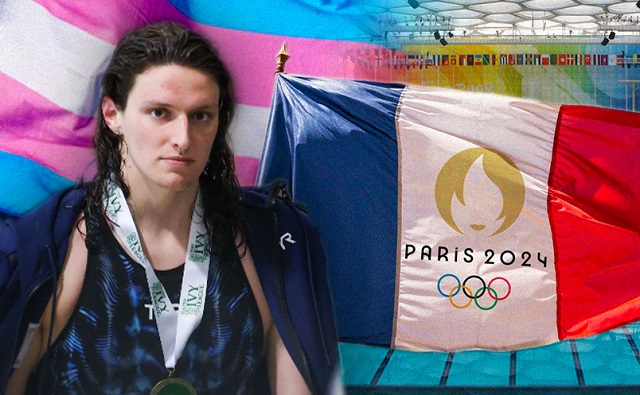By Calvin Freiburger
A Court of Arbitration for Sport panel ruled that William ‘Lia’ Thomas, a male swimmer who ‘identifies’ as female, lacked standing to challenge World Aquatics rules on males competing against women.
The Court of Arbitration for Sport (CAS) in Switzerland has rejected gender-confused former University of Pennsylvania swimmer William “Lia” Thomas’s bid to change World Aquatic rules to allow himself and other female-“identifying” male athletes from competing against actual women in major athletic competitions such as the upcoming Summer Olympics.
Thomas, who “transitioned” to identifying as a female yet retains male genitalia and reportedly remained heterosexual (despite self-identifying as lesbian), has drawn headlines since 2022 for generating unease among his actual female teammates and opponents, partly due to having to share lockers and partly due to his domination of women’s swimming competitions since switching from the men’s team.
In January, word came out that Thomas and Canadian law firm Tyr were seeking to have the CAS overturn a rule imposed by the swim governing body forbidding any male who has experienced “any part of male puberty” from competing as a female, which in 2022 closed a loophole allowing “transgender” athletes to qualify by reducing their testosterone levels.
Thomas has said that “it’s been a goal of mine to swim at Olympic trials for a very long time.” World Aquatics executive director Brent Nowicki previously said only that the “World Aquatics policy on gender inclusion, adopted by World Aquatics in June of 2022, was rigorously developed on the basis of advice from leading medical and legal experts, and in careful consultation with athletes.”
On Wednesday, the Associated Press reports, a three-judge CAS panel released its ruling dismissing Thomas’s request, on the grounds that he lacked standing to make it because he had not been a member of the court’s member federation USA Swimming when it was first brought nor had he competed in female events “for the purpose of qualification or selection.”
World Aquatics hailed the ruling as “a major step forward in our efforts to protect women’s sport.”
Thomas slammed the decision as “deeply disappointing,” criticizing bans on so-called “trans women” (gender-confused men) competing against actual women as an affront to gender-confused “identities.”
Several nationally-prominent female swimmers who have become outspoken advocates for maintaining sex distinctions in women’s athletics also welcomed the ruling:
Allowing gender-confused individuals in opposite-sex sports is promoted by leftists as a matter of “inclusivity,” but critics note that indulging “transgender” athletes undermines the original rational basis for having sex-specific athletics in the first place, thereby depriving female athletes of recognition and professional or academic opportunities.
There have been numerous high-profile examples in recent years of men winning women’s competitions, and research affirms that physiology gives males distinct athletic advantages that cannot be negated by hormone suppression.
In a 2019 paper published by the Journal of Medical Ethics, New Zealand researchers found that “healthy young men [do] not lose significant muscle mass (or power) when their circulating testosterone levels were reduced to (below International Olympic Committee guidelines) for 20 weeks,” and “indirect effects of testosterone” on factors such as bone structure, lung volume, and heart size “will not be altered” by hormone use; therefore, “the advantage to [gender-confused men] afforded by the [International Olympic Committee] guidelines is an intolerable unfairness.”
Critics also warn that forcing girls to share intimate facilities such as bathrooms, showers, or changing areas with members of the opposite sex violates their privacy rights, subjects them to needless emotional stress, and gives potential male predators a viable pretext to enter female bathrooms or lockers by simply claiming transgender status.
Thomas has become perhaps the most prominent example of the phenomenon. Former teammates have reportedly been intimidated into silence about their objections to Thomas by officials at Ivy League schools and by the National Collegiate Athletic Association (NCAA), though some have spoken out anonymously, describing Thomas as thoroughly dismissive of the feelings or interests of his teammates.
Some of his opponents have been more willing or able to go public, such as Gaines, who has openly discussed the experience of tying with Thomas for fifth place at the NCAA championships’ 200 freestyle competition in 2022. Despite both swimmers performing the same, Thomas was given a trophy to pose with for photos and Gaines had to settle for one mailed to her.
“It was at this point I realized that they’re trying to save face here,” she told the Conservative Political Action Conference in 2022. “I actually talked with a swimmer who is a survivor of sexual trauma, and being in the locker room with a male and seeing male parts has completely retriggered everything.”
















